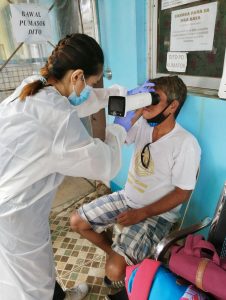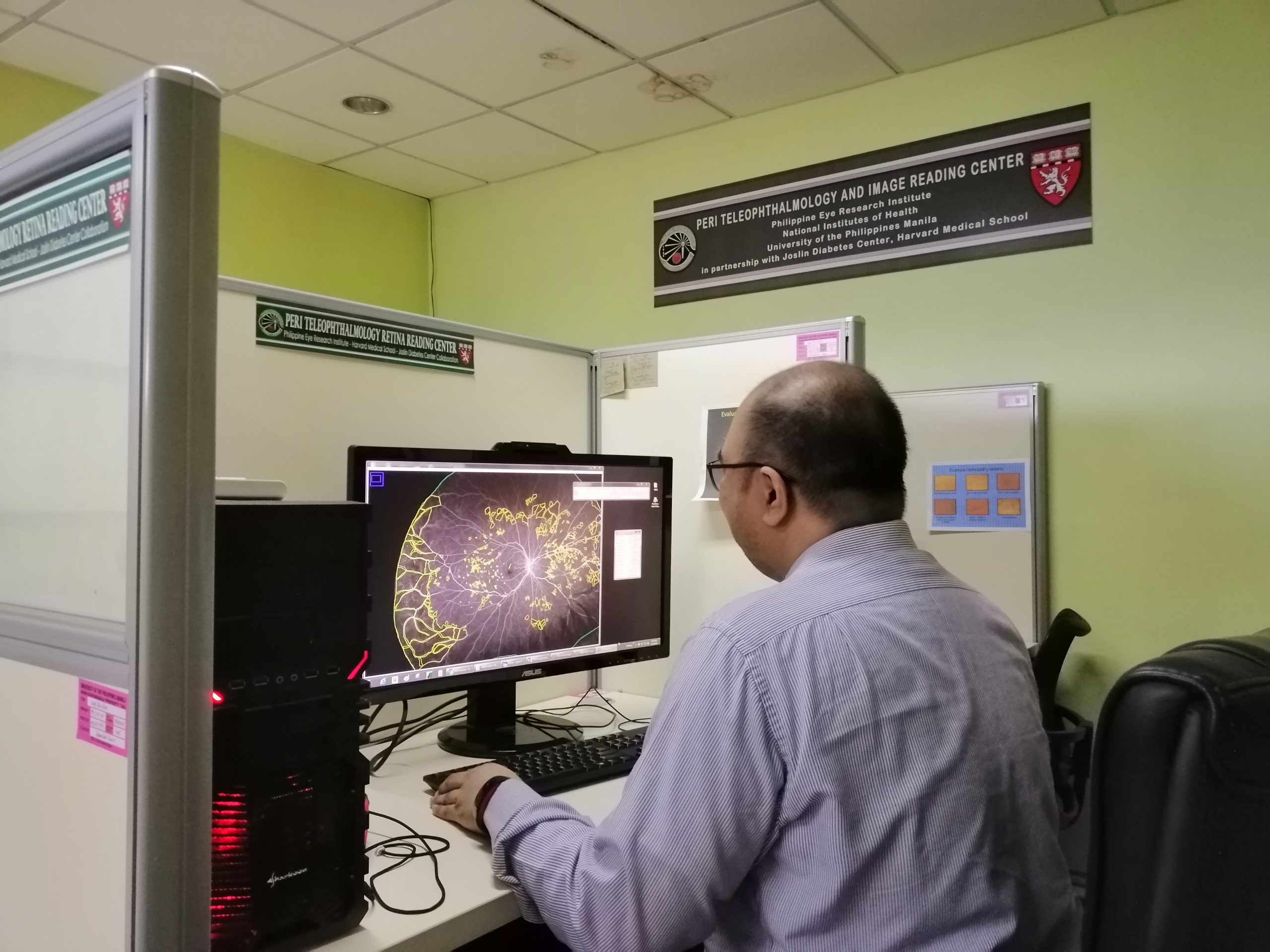NEWS AND UPDATES
Researchers from DOST-PCHRD-supported project awarded as Eye Health Heroes
Two researchers from the DOST-PCHRD-supported project “UK-Philippines Remote Retinal Evaluation Collaboration in Health: Diabetic Retinopathy” or REACH-DR are among this year’s awardees of the International Agency for the Prevention of Blindness’ (IAPB) Eye Health Heroes.
Initiated in 2012, the international award recognizes front-line staff who work to make “a real difference in aiding vision and restoring sight all around the globe” (Eye Health Heroes 2020). Last year, the programme recognized a total of 54 professionals from 29 different countries.

Among this year’s awardees are Filipino researchers Dr. Recivall Salongcay and Ms. Lizzie Anne Aquino from the REACH-DR project. The project is responsible for the first validated use of artificial intelligence in the field of ophthalmology in the Philippines, where both researchers work on retinal imaging.
The Queen’s University of Belfast of the United Kingdom (UK) and the Philippine Eye Research Institute (PERI) lead the REACH-DR program to establish a diabetic retinopathy screening program (DRSP) in the country for a timely diagnosis of those at risk for diabetes-related blindness and vision loss.
The IAPB described Ms. Aquino as a change-maker who “showed strong commitment and enthusiasm even if the whole experience was new to her” and is “highly proactive, has a strong sense of responsibility and is dedicated to improving the overall level of eye healthcare in the Philippines.”
On the other hand, Dr. Salongcay is described as a leader whose “career goals are anchored on avoidable blindness prevention through local and national eye services that utilize evidence-based, cost- and time-efficient strategies.” He is also described as a professional “with excellent work ethics” who “has consistently demonstrated diligence, determination in his work, and a desire to further his knowledge and skills.”

“Working as a Science Research Specialist in the REACH-DR project is an eye-opener, which made me realize the importance of diabetic eye screening especially in our country where diabetic retinopathy remains to be one of the leading causes of vision loss,” Ms. Aquino says. “Through the REACH-DR project, we can help reduce the prevalence of blindness due to diabetes and ultimately, help improve the lives of Filipinos,” she added.
“In the Philippines, around 4-5 million people with diabetes are at risk of losing their sight,” Dr. Salongcay emphasizes. “I am grateful to be part of REACH-DR, a project that has the potential to offer tangible benefits to Filipino patients with diabetes. Being involved in this project is also one of the ways I am giving back to the country and contributing towards nation-building,” he added.
To date, the REACH-DR is recruiting patients among different barangays in Nueva Ecija and Pampanga for retinal imaging. Funded under the DOST-PCHRD and the UK Medical Research Council’s Newton Agham Program, the project is expected to be completed by 2022.
Citations for the IAPB Eye Health Heroes Awardees may be accessed through this link.
References:
- https://www.iapb.org/connect/members/eye-health-heroes-2021-programme/
- https://www.iapb.org/connect/members/eye-health-heroes-2020/
- https://www.iapb.org/connect/members/eye-health-heroes-2021/




